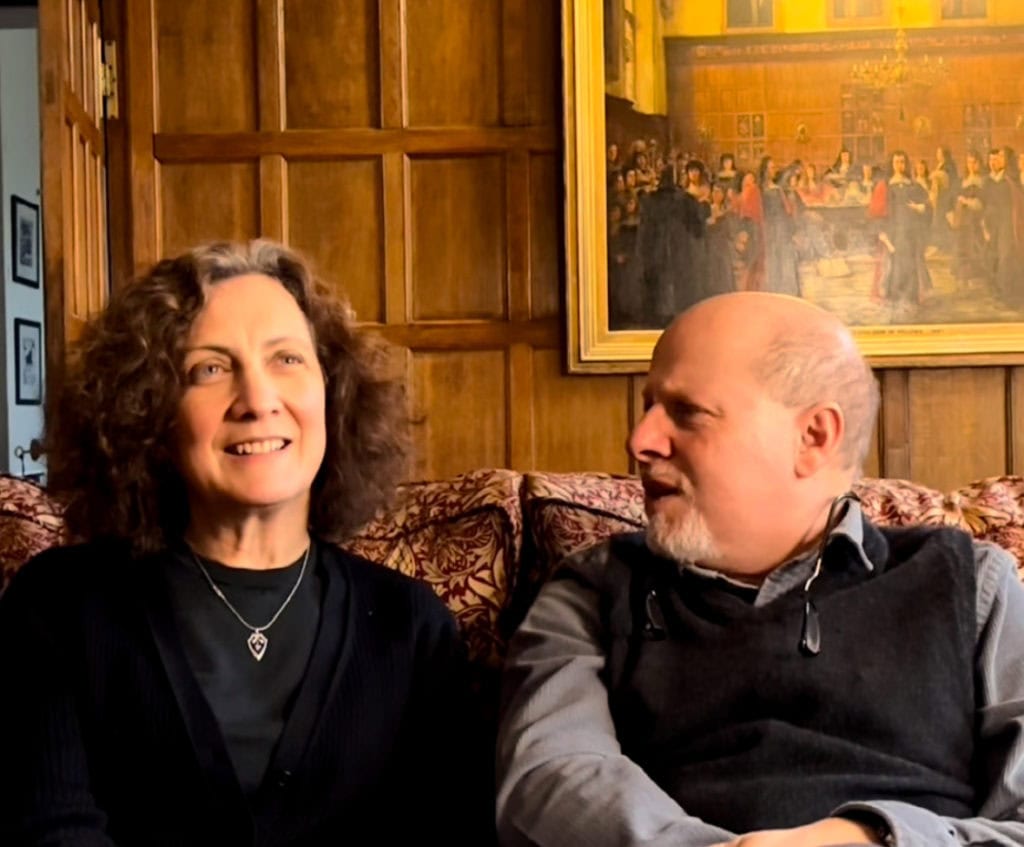
Magdalen Fellow in English Professor Simon Horobin sheds light on the often confusing world of Oxford lingo
Even though it may be some time since your student days, little has changed in the bewildering world of Oxford lingo. Students arriving in Oxford are often surprised to discover that they have come up, especially those who aren’t coming from the south of England. At the end of term they go down – unless they find themselves being sent down by the University proctors (a variant of the legal procurator). Less heinous crimes can result in a student being rusticated: a form of suspension which, etymologically at least, involves being sent to the countryside (Latin rusticus). The formal beginning of a degree is known as matriculation, a ceremony held in the Sheldonian Theatre, in which membership of the University is conferred by having one’s name entered on the register, or matricula.
Magdalen takes its name from the Greek Magdala, the name of the town on the Sea of Galilee (from an Aramaic word meaning ‘tower’), from which Mary Magdalen originated. In the Middle Ages this word’s pronunciation became anglicised to “maudlin” – as reflected in the contemporary spelling maudlyn. This medieval pronunciation has been retained in the name of the College, even though the spelling has been revised to reflect the Greek origin. The earlier spelling is still found in the related adjective maudlin, now meaning ‘sentimental, self-pitying’, but originally ‘tearful’, in reference to traditional images of a lachrymose Mary Magdalen. The word college is from the Latin collegium, meaning ‘partnership’ or ‘society’, and is related to the word colleague.
Magdalen’s head of house is known as the President; other colleges have a range of different titles: Principal, Dean, Master, Provost, Rector, or Warden. The head of house presides over a governing body made up of Fellows (from an Old Norse word referring to a colleague in a joint financial enterprise – literally ‘one who lays down money’), also known as dons, from Latin dominus ‘master’. If these terms are confusing for new students, they must be even more so at Christ Church (which must never be called Christ Church College but can be referred to as ‘The House’), where Fellows are termed students. The title reader, a medieval term for a teacher used to refer to a lecturer below the rank of professor, has recently been retired at Oxford in favour of the American alternative associate professor. Emeritus Fellows are ones who have retired but are permitted to retain the title; the name is the past participle of the Latin verb emereri ‘to earn one’s discharge by service’. Former students, or old members, are also known as alumni, a Latin word meaning ‘pupils’, from alere ‘to nourish’ – also the root of alma mater, the term for a former college or university, literally ‘nourishing mother’.
Students at Oxford read rather than study a subject, a usage which goes back to the Middle Ages. All final examinations were originally known as Greats; this term is now used only of the degree of Literae Humaniores (‘more humane letters’) — Classics to everyone else. No longer in use is the equivalent term Smalls for the first year exams; these are now known as Moderations (or Mods), or more commonly as Preliminaries (or Prelims). Sadly, the slang equivalents great go and little go have entirely fallen out of use. University examinations are sat in Schools, a forbidding edifice on the High Street (or ‘the High’) which gets its name from its original use for holding scholastic disputations. Students continue to be required to wear formal academic dress to sit exams; this is known as subfusc, from Latin subfuscus ‘rather dark’.

College exams, rather less formal affairs, are known today as collections, from Latin collectiones, ‘gathering together’. The name derives from the fact that they occurred at the end of term when fees were due for collection. Confusingly, the term collection is also used to refer to the end-of-term meeting where a progress report is read by a student’s tutor in the presence of the head of house. As well as fees, students must pay their batells, a bill for food purchased from the College buttery— originally a wine store, from Latin buttis ‘cask, wineskin’, but now extended to include a range of delicacies.
Teaching in College is still focused on the tutorials (or tutes), overseen by College tutors (from a Latin word for a protector); the earliest tutors were responsible for a student’s general welfare — a post formerly known as moral tutor and now as personal tutor. In addition to tutorials, students continue to attend lectures in faculties or departments, more or less diligently. Given the increasing availability of lectures in digital format, via a weblink or podcast, even more so in recent weeks, the seventeenth-century wall-lecture —used of a lecture delivered to an empty room – is becoming an increasingly real possibility. The University year continues to be divided into three terms (from Latin terminus ‘end, limit’) of eight weeks, known as Full term. The gradual extension of University business into the vacation has led to the coinage of such clumsy formulations as noughth week and minus first week. Many British universities have jettisoned terms altogether, in favour of the American semester, from a Latin word meaning ‘six-monthly’ (sex ‘six’ and mensis ‘month’).
Memories of your time at the College may be more focused on your leisure moments than on your academic pursuits. Perhaps you remember enjoying the College grounds: strolling round Addison’s walk, named after former fellow Joseph Addison, or watching the deer in the Grove (from the Old English graf, meaning ‘small wood’). Perhaps you spent your time playing sport, even representing the College in an intercollegiate cuppers competition. This name is taken from the cup for which teams compete, with the -er ending popular in nineteenth-century Oxford slang, best known today from rugger and soccer, but formerly found in names like the Bodder ‘Bodleian library’ and the Radder ‘Radcliffe Camera’, as well as more implausible examples such as wagger pagger bagger ‘waste paper basket’.
Perhaps you represented the University against Cambridge University (whose affectionate moniker ‘The Other Place’ was originally a euphemism for hell) in a Varsity match, a colloquial shortening of university with an alternative pronunciation also found in clerk and Derby, thereby earning a blue. The earliest recorded use of this term in the Oxford English Dictionary is taken from an article from the Daily News in 1882, in which one Ralph St John Ainslie is described as someone likely to win his blue. But, despite captaining the Oriel College boat club and trialling for the University Eight on three occasions, Ainslie never got his blue – a disappointment that was only exacerbated by his failure being enshrined in the pages of the OED.
Hopefully your memories of your time at Oxford are more positive than those of Ralph Ainslie, and that you will come back – perhaps to a gaudy, from Latin gaudium ‘joy’, where you will have the chance to raise a glass and toast the College: Floreat Magdalena: ‘Let Magdalen flourish’.



